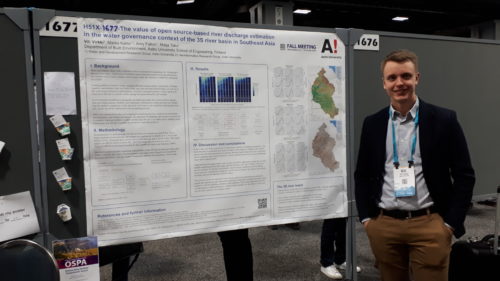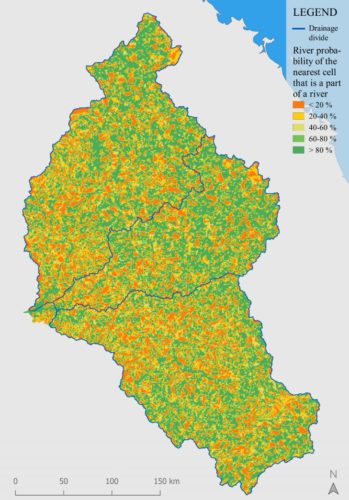When I came up with the title “The value of open-source based river streamflow estimation in Southeast Asia”, my attempt to write a Master’s Thesis was a lot easier said than done; attempting to compose an outlook on both sought-after uncertainty estimation of hydrostreamer and on how it could be used in real-world applications was difficult to say the least, but finally paid off when I finished my thesis in late 2018. This is a short introduction to not only the topic but also to my experience as a thesis worker within WDRG.

My instructors certainly came up with lots and lots of brilliant ideas on how to develop the work and how to make neat additions to the study; it’s very easy to say when you don’t have to do it yourself! Luckily, they were finally (and always) nice enough to accept “no” as an answer; learning where to draw the borders of my topic and how to limit my viewpoints and writing was maybe the most fruitful learning experience during my work. Besides that: interviewing, surveys, qualitative analysis, crash course on water governance in Southeast Asia, spatial R, hydrostreamer… Looking back, I did learn a lot of other things, too!
What we knew before, was that water flows downstream and that uncertainty certainly propagates somehow in complex river networks. How much and where, was another question. To answer this, I constructed a long simulation starting from a digital elevation model and finishing in a mere bar graph showing the uncertainty of streamflow estimates as a function of Strahler order. It took a few weeks to develop and a few days to run in the first try. Later, in collaboration with Marko, I included a revision of my codes to hydrostreamer and now those things are a matter of minutes rather than days. Doing once to learn and twice to get the real thing going seemed to be the case here.
After I got very excited about the bar graph and took it to interviews with local modellers in Southeast Asia, I noticed that when you think your results are rather understandable after weeks of staring at them, those who had no idea about your project can’t possibly grasp it all in a Skype interview with varying-quality (bad) internet connection. Anyhow, interviewing people who are acting in water resources management in my study area opened lots of space and topics for discussion: how could this and that software be used, for which purposes, and by whom? What does it truly mean to have open-source software and data?

My research questions got answered, too. We did find some preliminary limits on uncertainty related to modelling streamflow with hydrostreamer and shed more light on the uncertainty sources; potentially for future research topics. In the study area, hydrostreamer is not directly applicable as it is, but open source may have a gap into which to squeeze in, which is when major donors and other organizations start favouring open and transparent solutions. Then, if we ensure that the adopted open source is truly open and not technically open but practically limited to only a few experts, it is possible that modelling as a part of science-policy interaction may become fairer and more transparent. Implications of this could also be an interesting topic for further research.
Finally, I got the chance to participate in a scientific conference with my work (and simultaneously a deadline to complete it) in December when I participated in AGU Fall Meeting 2018 in Washington, DC. Finalizing the second version of my thesis in Brooklyn after a flight of nine hours and a time zone difference of seven hours was somewhat exhausting but paid off once I got to the poster hall with my presentation in king sized blanket dimensions and mind ready for tough questions. It was a nice finish for my work to be able to attend the conference and present it for a bit larger audience than the thesis seminar in our lab.
As a closing note on doing master’s thesis in a research group: opportunity > threat.
MSc. (Tech.) Vili Virkki works as a research assistant in Water and Development Research Group. Thesis available online on Aalto Docs.

